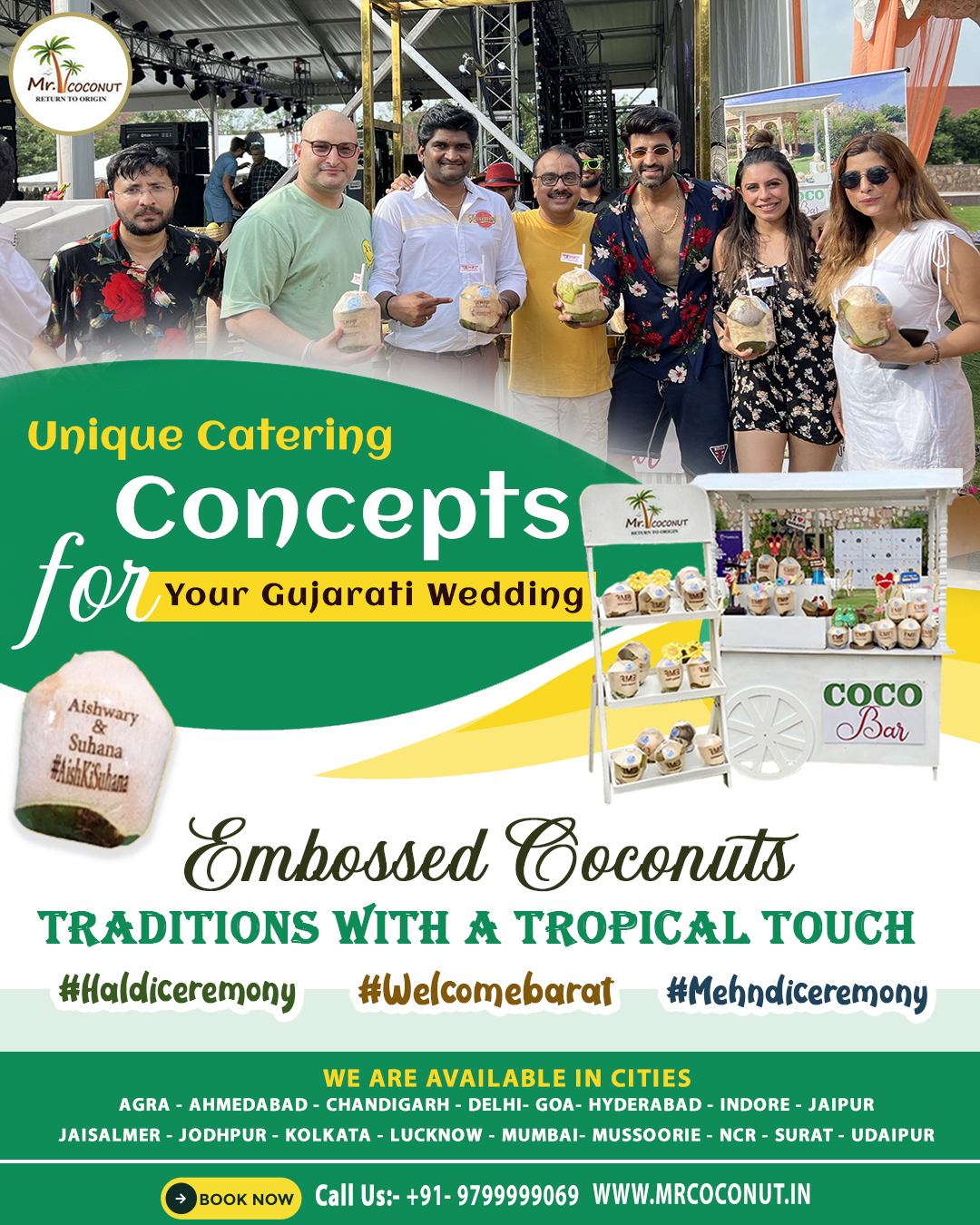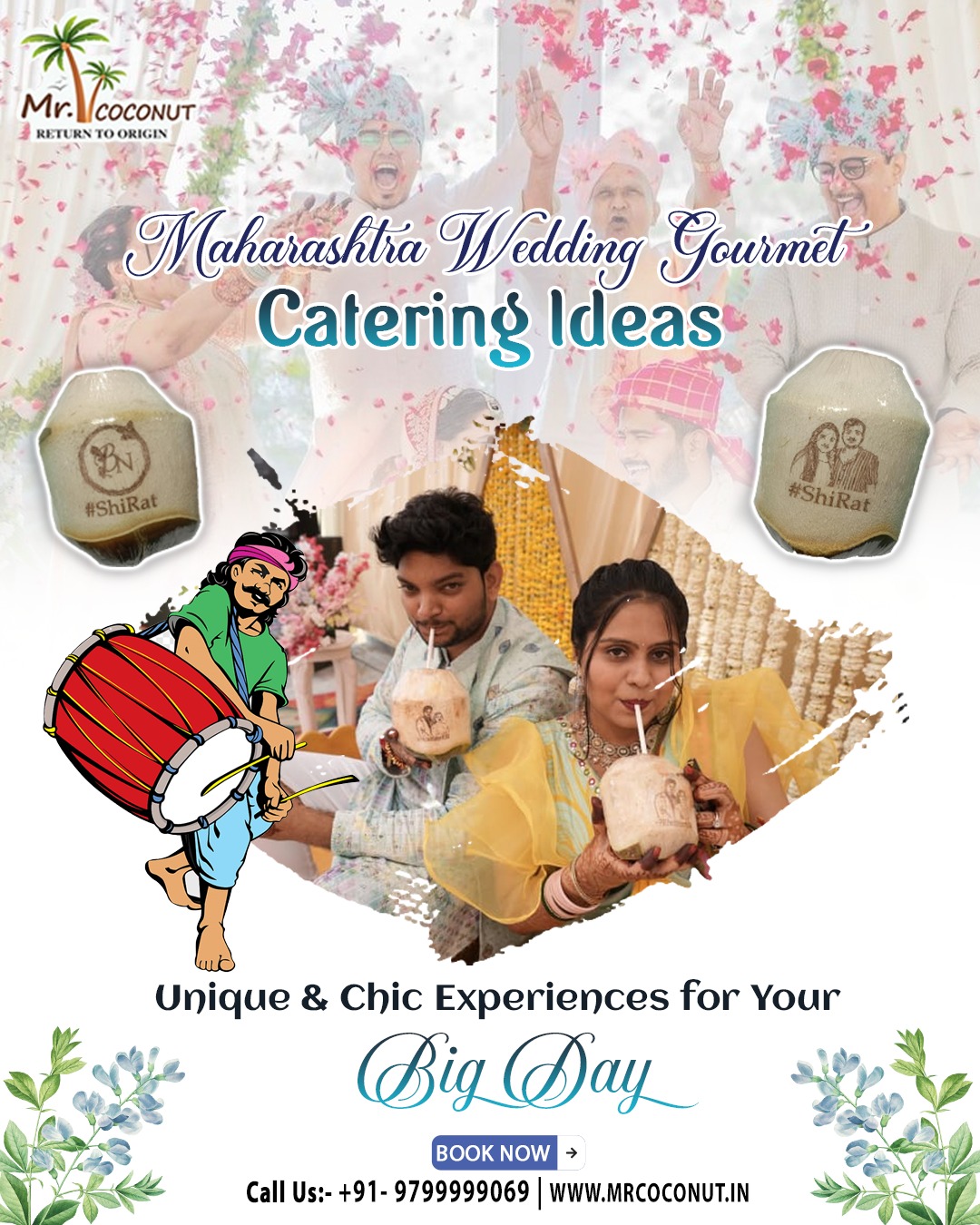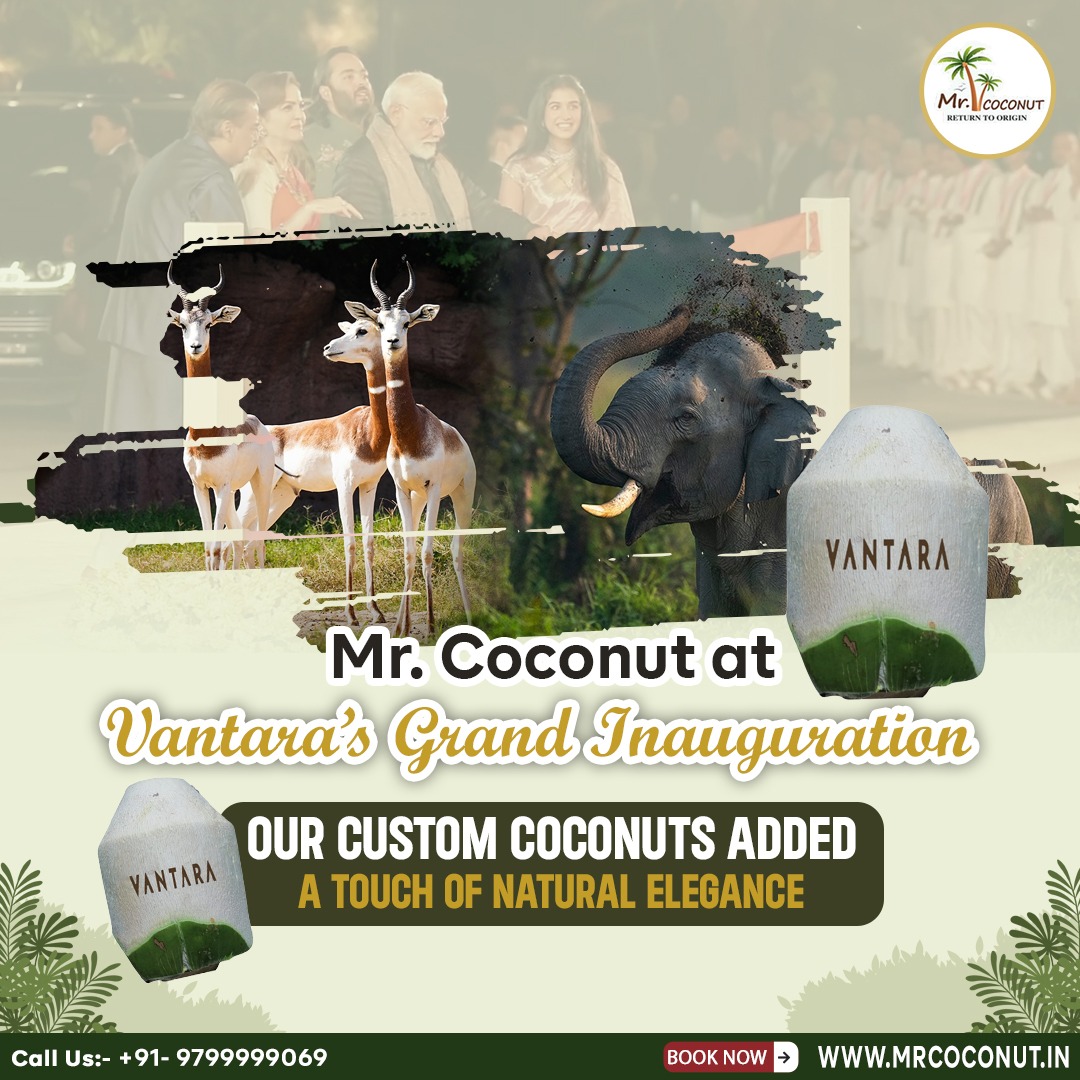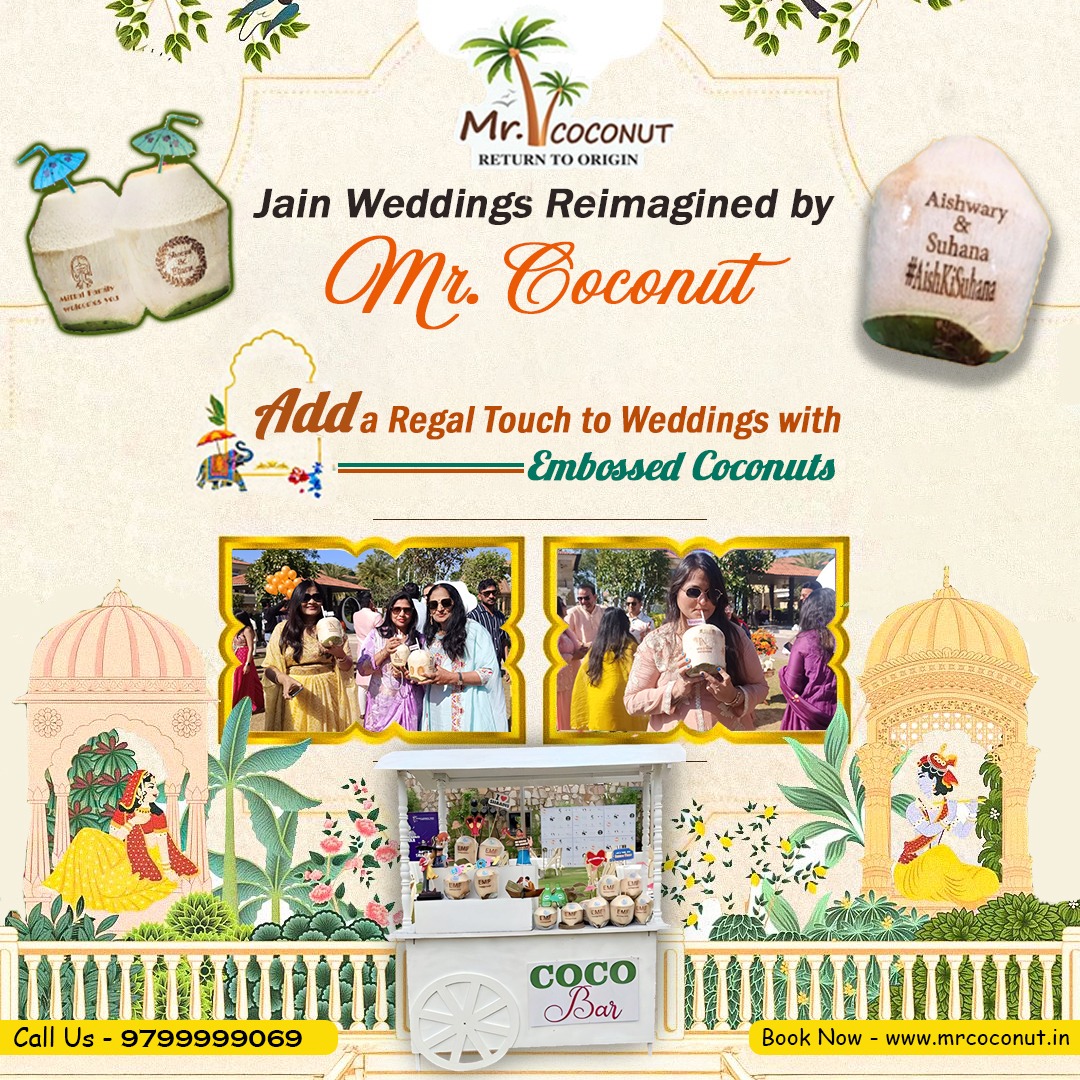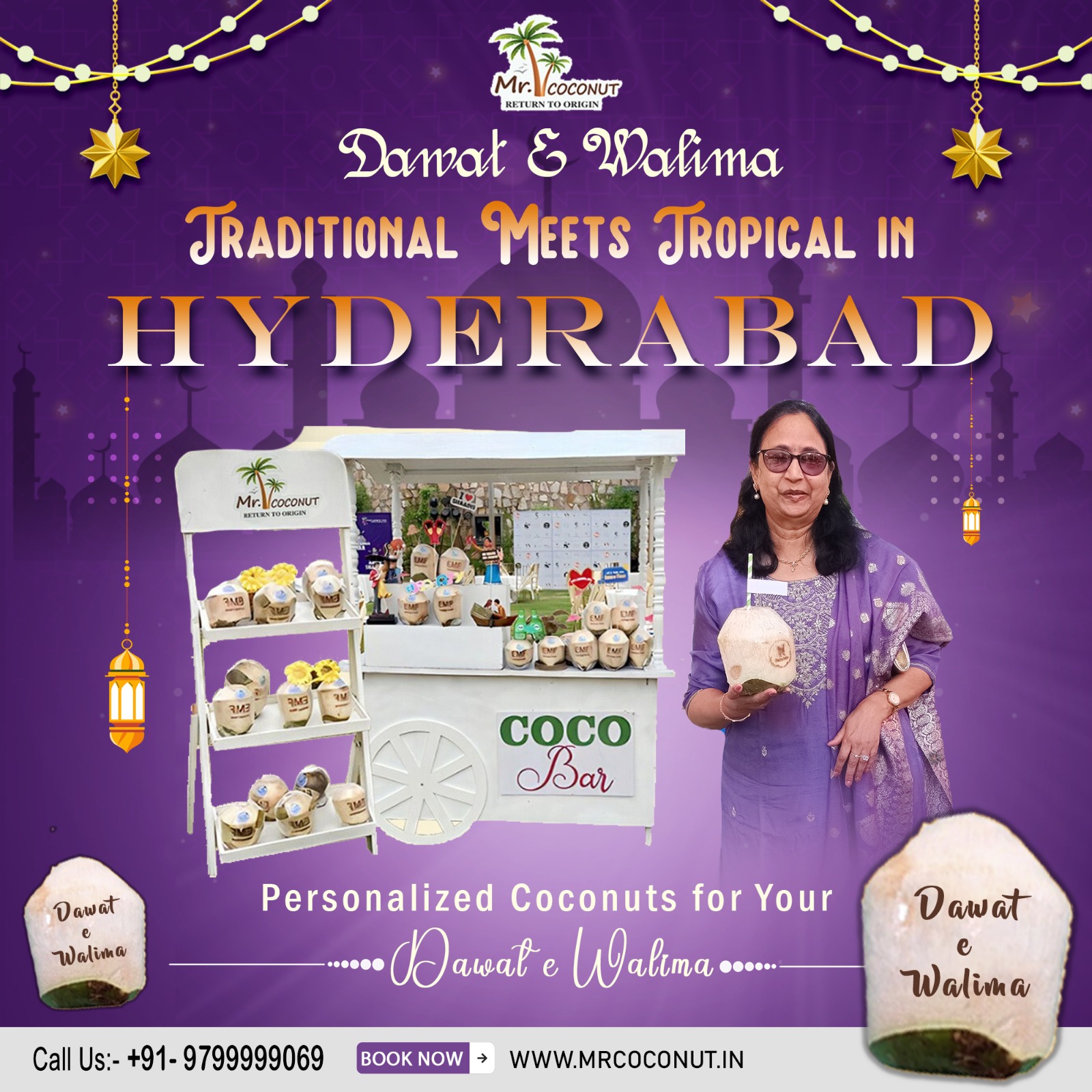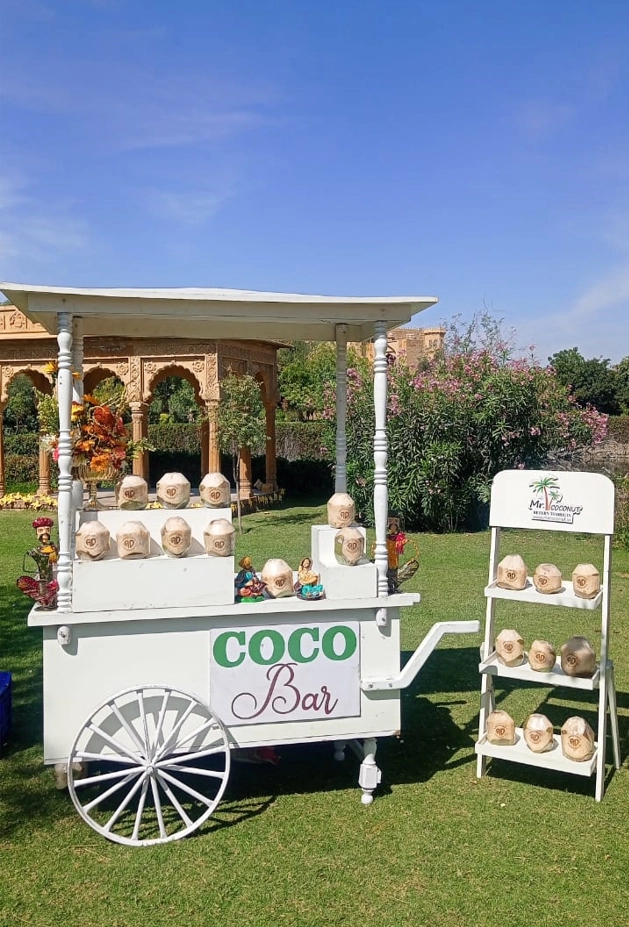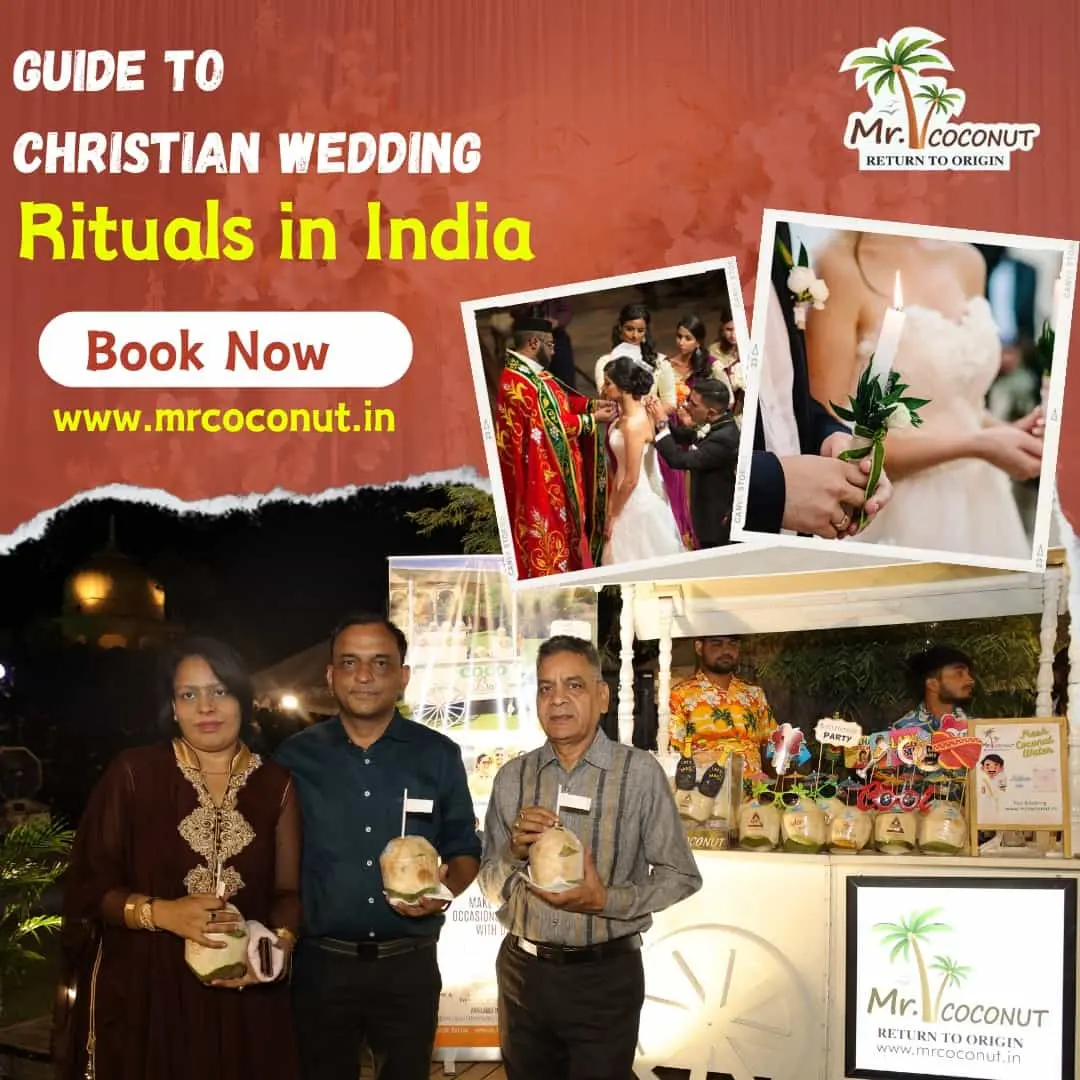
Guide to Christian Wedding Rituals in India
By: Shivam Agarwal, CEO & CO-FOUNDER MR COCONUT | 28 February 2024Christian weddings celebrated with a blend of elegance, tradition, and personal touches, offer a rich tapestry of rituals that vary widely across cultures and regions. This diversity is beautifully illustrated in the customs of Indian Christian weddings, which harmoniously merge Indian and Western traditions, and in the broader context of Christian wedding traditions observed around the world. As we delve into these rituals, we also explore how customized coconuts by Mr. Coconut can add a unique and meaningful touch to these celebrations.
Integrating Mr. Coconut into Christian Weddings
Customized coconuts by Mr. Coconut offer a unique and innovative way to incorporate traditional elements into Christian weddings, particularly in rituals like the Haldi/Roce ceremony in Indian Christian weddings or as a refreshing, personalized touch in receptions globally. Here's how:
Customized Coconuts for the Haldi/Roce Ceremony: In regions where coconut paste is used, Mr. Coconut can provide customized coconuts, adding a personal touch to this meaningful ritual.
Welcome Drinks and Gifts: Customized coconuts can serve as unique welcome drinks or wedding favors, offering guests a memorable keepsake from the day.
Decoration and Centerpieces: Coconuts engraved with the couple's names, wedding dates, or thematic designs can add a tropical, personalized flair to wedding decor.
Indian Christian Wedding Rituals
Indian Christian weddings are a beautiful amalgamation of Indo-Western traditions, reflecting the cultural diversity of India while embracing elements of Western wedding ceremonies. The main customs and rituals include:
1. Engagement Ceremony
The engagement ceremony marks the formal announcement of the wedding. It's a prelude to the wedding where the couple exchanges rings in the presence of family and friends, symbolizing their commitment to each other. This event is often accompanied by prayers, blessings from the elders, and sometimes a short message or sermon from a priest or pastor. It's a celebration of the new journey the couple is about to embark on, filled with joy, music, and often, a feast.
2. Bachelor and Bachelorette Parties
While not traditional in the historical sense, bachelor and bachelorette parties have become a popular way for the bride and groom to celebrate their upcoming nuptials with their close friends. These parties are a way to bid farewell to single life. They can range from simple gatherings at home to elaborate outings, depending on the preferences of the bride and groom.
3. Haldi/Roce Ceremony
The Haldi ceremony, known as Roce in some Christian communities, especially among Indian Christians from the western and southern parts of India, is a pre-wedding ritual that involves applying a paste made from turmeric (and sometimes coconut paste in certain regions) on the bride and groom. This ceremony is believed to bless the couple and purify them before the wedding. It's a fun and joyous occasion, with family members applying the paste on the couple, followed by singing and dancing.
4. Bride's Welcome
On the wedding day, the bride is traditionally welcomed at the church or the wedding venue by the groom's side. This can involve the best man or another close family member greeting her with a bouquet of flowers. The bride then makes a grand entrance, often escorted by her father or a close male relative, symbolizing the family's acceptance of the union.
5. The Holy Mass
The wedding Mass or service is a central part of the Christian wedding, particularly for Catholic Christians. It includes prayers, readings from the Bible, hymns, and the Eucharist. The ceremony starts with the priest welcoming the couple and the congregation, followed by readings from the Scriptures. The couple then exchanges vows and rings, making their marriage official in the eyes of God and the law. The Mass emphasizes the sanctity of marriage and seeks blessings for the newlyweds.
6. Exchanging of Vows
The exchange of vows is the heart of the Christian wedding ceremony. The couple professes their love and commitment to each other in front of God and the gathered witnesses. They promise to love, honor, and cherish each other through all circumstances. This solemn exchange is often the most emotional part of the ceremony.
7. Bouquet Tossing
The bouquet toss is a fun tradition that has been adopted into many Indian Christian weddings. After the ceremony, the bride tosses her bouquet over her shoulder to a group of unmarried women. Tradition holds that the one who catches the bouquet will be the next to marry.
8. Reception
The wedding reception follows the church ceremony. It's a time for celebration, with food, music, dancing, and speeches. The reception often starts with the newlyweds' first dance, followed by the cutting of the wedding cake, which symbolizes their first act as a married couple. The evening continues with a feast, toasts to the couple, and a night of dancing and merriment.
Each of these ceremonies is imbued with deep symbolic meaning and reflects the cultural diversity of Indian Christianity. From the solemnity of the Holy Mass to the joyous celebrations of the reception, Indian Christian weddings are a beautiful blend of faith, tradition, and community.
Global Christian Wedding Traditions
Christian weddings around the globe share several core rituals, though each culture brings its unique flavor to these traditions:
Wedding Ceremony: Typically held in a church or religious setting, officiated by a minister or priest.
Exchange of Vows: The bride's entrance and the couple's exchange of vows are central elements, deeply rooted in tradition and personal significance.
Unity Candle or Sand Ceremony: Symbolizing the merging of two lives into one.
Communion and Scripture Reading: Some ceremonies include communion and the reading of Bible passages, emphasizing the spiritual foundation of the marriage.
Recessional and Reception: The newlyweds' exit from the ceremony is followed by a reception, where guests celebrate with food, music, and dancing.
Conclusion
Christian weddings, whether in the vibrant cultural landscape of India or elsewhere in the world, are rich in tradition and personal expression. The integration of customized coconuts by Mr. Coconut into these ceremonies and celebrations exemplifies how traditional elements can be reimagined to create unique and memorable wedding experiences. From the solemnity of the vow exchange to the joyous festivities of the reception, every aspect of a Christian wedding can be enhanced with thoughtful, personalized touches that reflect the couple's values and heritage.



